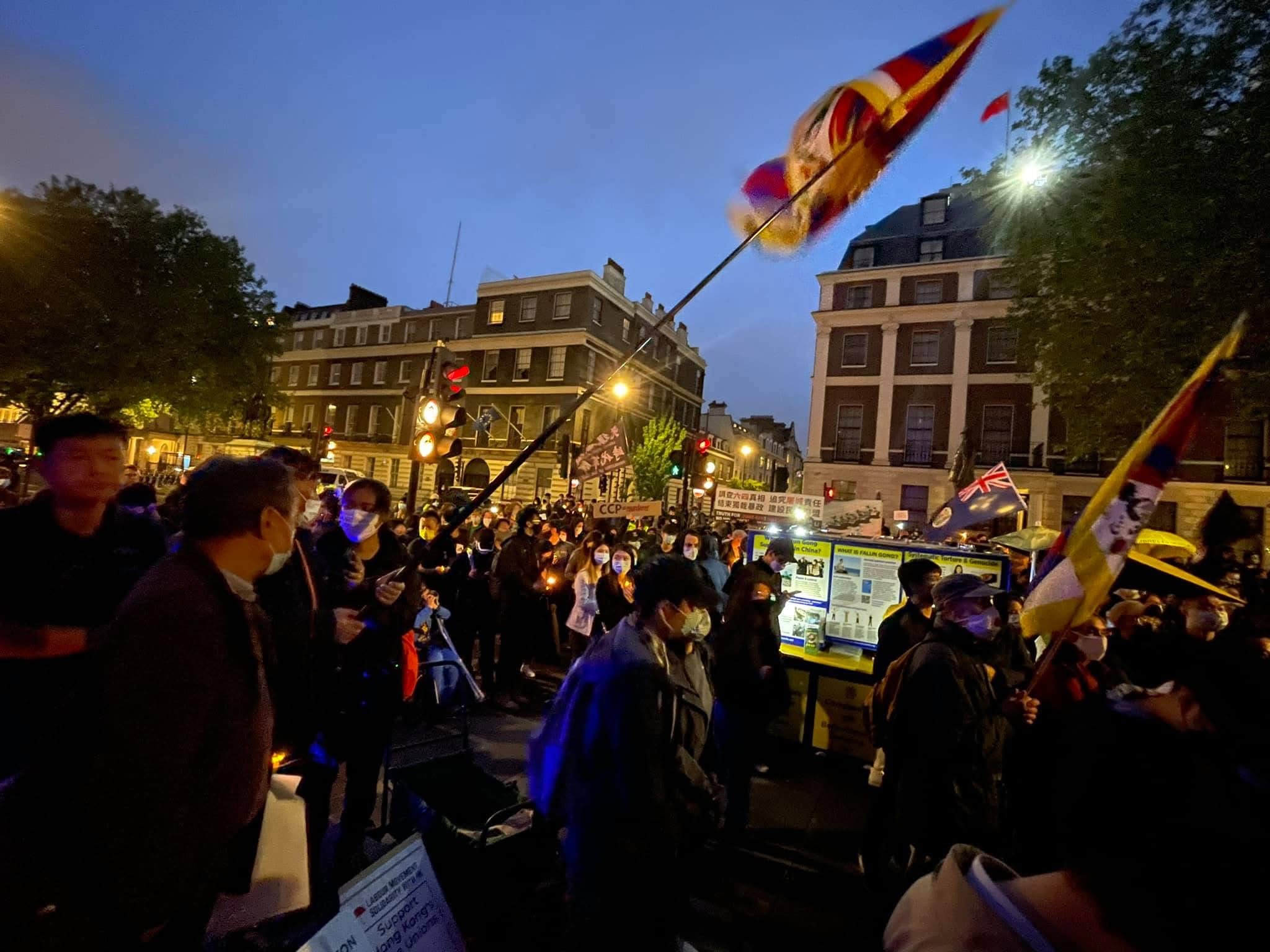China’s ‘Super-Embassy’ in London Must Be Stopped: A Threat to Democracy and Human Rights

Tsering Passang and Jay Ng
On 8th February, a coalition of persecuted communities and human rights defenders will gather outside the Royal Mint Court in London to protest China’s proposed ‘super-embassy.’ This vast diplomatic compound—spanning nearly 700,000 square feet—is not merely an embassy but a strategic outpost for Beijing’s authoritarian influence in the heart of the UK. The Labour government must listen to those who have suffered directly under the Chinese Communist Party (CCP) and take a decisive stand against this alarming project.
Prominent human rights advocates and MPs, including former Security Minister Tom Tugendhat, Labour MP Blair McDougall, Shadow Justice Secretary Robert Jenrick, and Benedict Rogers—co-founder of Hong Kong Watch and Deputy Chairman of the Conservative Party Human Rights Commission—are expected to address the rally, which is anticipated to draw several thousand attendees.
A Plan Rejected by Local Authorities and Residents
When China purchased the historic Royal Mint Court site in 2018, its objective was clear: to build its largest embassy in Europe. However, in 2022, Tower Hamlets Council unanimously rejected the proposal, citing security risks and strong opposition from local residents. Alongside concerns raised by the security services, the Metropolitan Police also flagged the site’s lack of space for safe public demonstrations. Despite these warnings, the Labour government under Prime Minister Sir Keir Starmer has signalled its willingness to push the project forward, disregarding the valid objections of local residents, elected officials, and human rights advocates.
On 14th January 2025, Foreign Secretary David Lammy and Home Secretary Yvette Cooper wrote to the Planning Inspectorate, backing the embassy plans. Soon after, Tower Hamlets Council also reversed its position, aligning with the Labour government’s pro-Beijing stance. This troubling U-turn raises serious questions: Why has local opposition been ignored? What changed within the Metropolitan Police that led them to withdraw their objections? Most importantly, why is the UK government disregarding the voices of those who have suffered under the CCP’s repression?
A Direct Intervention by Xi Jinping
This issue extends beyond local planning—it strikes at the heart of the UK’s sovereignty and democratic values. In August 2024, Chinese President Xi Jinping personally raised the embassy matter with Prime Minister Keir Starmer during a phone call, exerting direct political pressure. Shortly afterwards, the British government took control of the planning application, effectively overriding Tower Hamlets Council’s initial rejection. This intervention reflects the centralised authoritarianism seen in China, where local voices and democratic institutions are routinely overruled by state power. The Labour government’s willingness to appease Xi Jinping sets a dangerous precedent, undermining UK democracy and enabling further authoritarian encroachments.
A Hub for Transnational Repression
China’s global record of transnational repression is well documented. From surveilling dissidents abroad to threatening their families at home, the CCP has long used its embassies as operational bases to silence critics. This embassy would be no exception. Tibetans, Uyghurs, Hongkongers, Taiwanese, and pro-democracy activists in the UK have already faced intimidation from Chinese authorities. Allowing China to establish a sprawling intelligence hub in London would only embolden its efforts to monitor, harass, and suppress those seeking freedom and justice.
Recent developments further highlight the dangers of China’s growing influence. Beijing has supported Russia’s invasion of Ukraine by supplying military equipment and helping Moscow evade sanctions. It has signed a security pact with Hungary, permitting Chinese police to operate freely in a European capital. Meanwhile, Hong Kong authorities have placed bounties on overseas activists and harassed their families. If the UK permits this embassy to proceed, it would signal weakness in the face of rising authoritarianism and compromise national security.
The Need for Collective Resistance
The Global Alliance for Tibet & Persecuted Minorities (GATPM), alongside 27 human rights organisations, has taken decisive steps to oppose this project. In November 2024, GATPM submitted an urgent petition to Deputy Prime Minister Angela Rayner and other key government officials, urging them to reject China’s ‘super-embassy’ plans on human rights and public safety grounds. Last month, a coalition of Hongkongers also delivered a letter to Angela Rayner’s office in Manchester, yet the government remains unresponsive. It is clear we must raise our voices even louder.
That is why we are taking to the streets on 8th February. This protest is not just about opposing a building—it is about defending democracy, free speech, and the right to live without fear of persecution. We call on every supporter of human rights and British sovereignty to stand with us.
Join Us in Defending Democracy
A decision on this embassy is imminent. If we fail to act now, Britain risks becoming a safe haven for authoritarian influence. We urge all who believe in democracy, human rights, and the rule of law to join us in protest:
📅 Date: Saturday, 8th February 2025
⏰ Time: 2:00 PM – 4:00 PM
📍 Location: Royal Mint Court, Tower Hamlets, London EC3N 4QN
We must not allow Beijing’s authoritarian grip to extend further into British society. This protest is a moment for unity, resistance, and a clear message that the UK will not bow to intimidation. The voices of Tibetans, Uyghurs, Hongkongers, Taiwanese, mainland Chinese dissidents, and all persecuted communities must be heard—and they must not be silenced for political convenience.
Our message to the UK government is clear: Say NO to China’s ‘super-embassy.’ Stand up for democracy. Stand up for human rights. Stand up for Britain’s sovereignty.
Together, we can make a difference. See you on 8th February.
About the Authors
Tsering Passang is the founder and chair of the Global Alliance for Tibet & Persecuted Minorities, based in London, UK. Visit his blog: www.Tsamtruk.com
Jay Ng is a human rights advocate and business consultant from Hong Kong. He is the founder of Freedom Card.
Tsering Passang




![From Kathmandu to the World: How Excel Students Are Winning Big [Admission Open]](https://nepalaaja.com/index.php/img/70194/medium/excel-college-info-eng-nep-2342.jpg)


